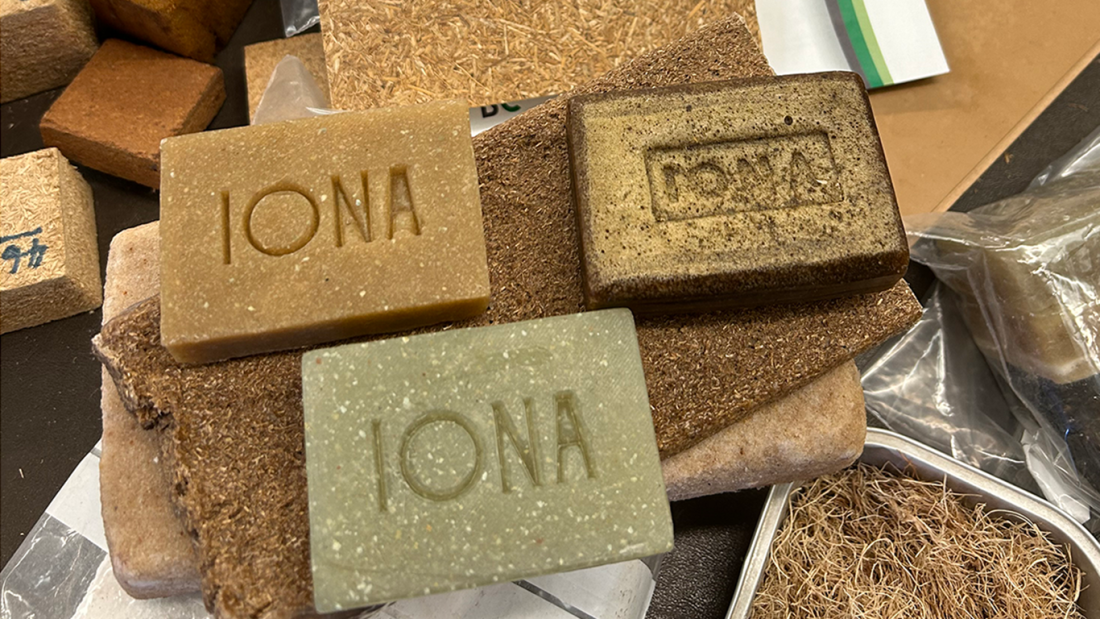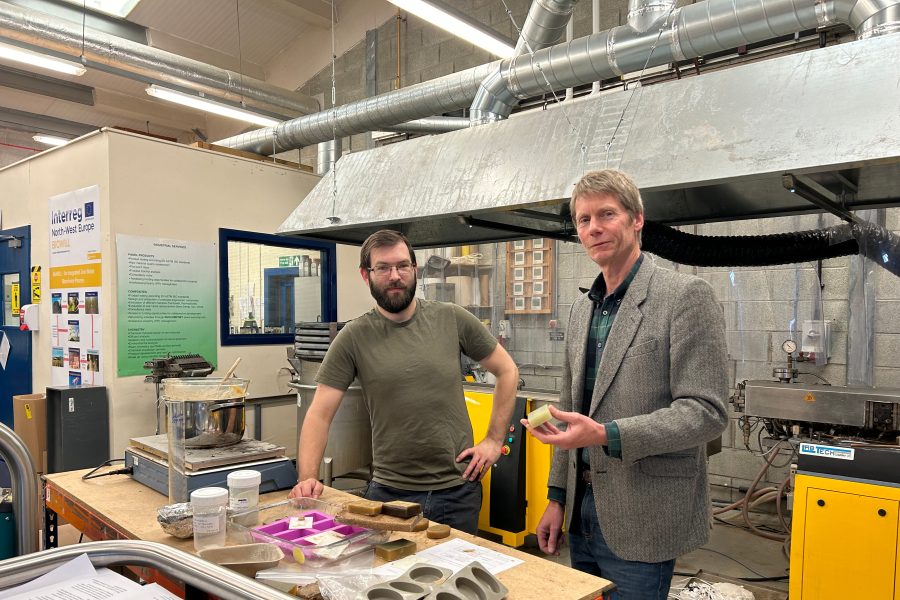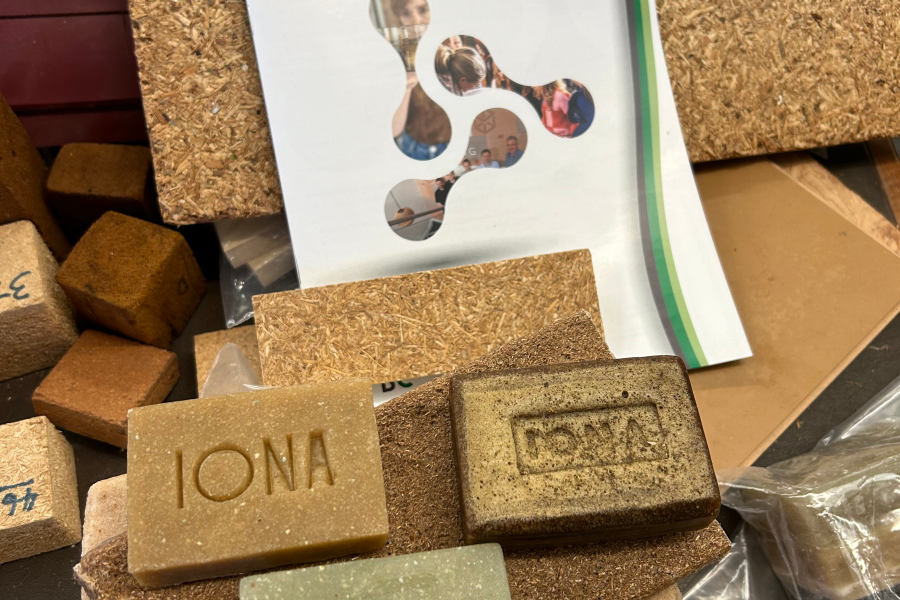"Soap has been around for four or five thousand years and natural soaps are very much in demand in the wider cosmetic market, but less common for industrial uses, such as for farmers or mechanics who need a very effective cleanser.
"As someone with an interest in innovation and new product development , I was keen to find out if we could develop a soap with the right properties to clean the hands without the harshness and environmental impact. Some of the products out there contain chemicals or microplastics to provide that abrasive action, which is then washed away and causes unnecessary environmental pollution."
The product IONA Minerals is developing uses a natural material which removes toxins and has antimicrobial and anti-inflammatory properties. Other ingredients include a botanical plant extract which has been used in the Middle East for hundreds of years, which creates a natural lather.
Having done some research themselves, IONA Minerals was keen to draw on the Biocomposites Centre's decades-long materials expertise to move their very early product ideas forward.
"Part of our R&D is finding the appropriate particle size for the natural material added to the soap – too large and it's too harsh, too small and it doesn't provide enough cleansing and exfoliation," said Selwyn. "We also experimented with different soap bases, to see which one enabled us to distribute the material evenly through the soap. We also looked at different ways of adding the botanical plant extract; for example using the whole powder from the milled leaf and an aqueous extract to evaluate the different results.
Fast-tracking the process...
"Working with the Biocomposites Centre has certainly fast-tracked what we've been able to do. The technical team at Mona have given us lots of advice, and we've taken that on board as a company. Now we have some prototype samples to show potential customers and undertake trials , although we still have work to do before the product is certified and ready for the market. For instance, we need to look at colour, packaging, fragrance and what size and shape of soap our potential customers prefer. The important thing is that we've got an idea off the ground, and I think in that, the voucher has served its purpose and we are grateful for the excellent R&D support provided"
Dr Adam Charlton of the Biocomposites Centre added, "We're very glad to have been able to collaborate with IONA Materials on developing these prototypes, using our knowledge of biomaterials. We did a lot of work with Welsh businesses interested in exploring biobased opportunities for growth during the Beacon project, part-funded by the European Regional Development Fund (ERDF) through the Welsh Government. Our centre is very much geared towards helping companies trial materials, de-risk ideas and help develop new products and processes, with tangible outputs."
Nicola Sturrs, Business Development Manager, Skills & Innovation Voucher Scheme at Bangor University said,
“We are delighted to award IONA Minerals with a Skills and Innovation Voucher. Our SIV scheme has proved to be extremely popular, and we’ve received a large amount of interest from businesses across Anglesey, Gwynedd and Flintshire.”
More information on the Skills and Voucher Scheme is available here: https://www.bangor.ac.uk/business-services/the-skills-and-innovation-voucher-scheme



